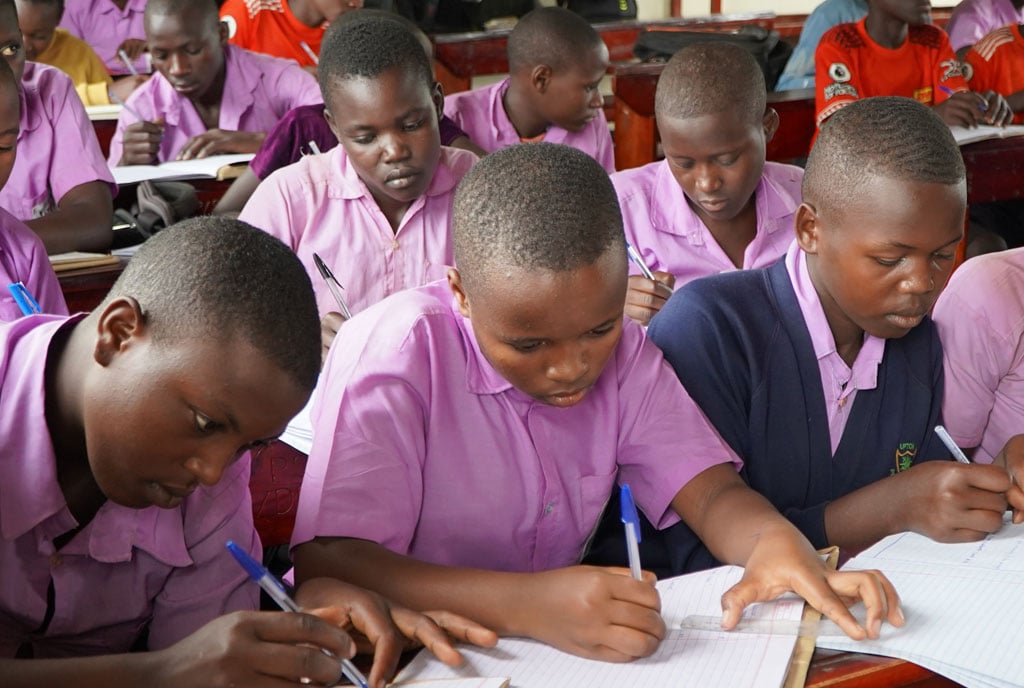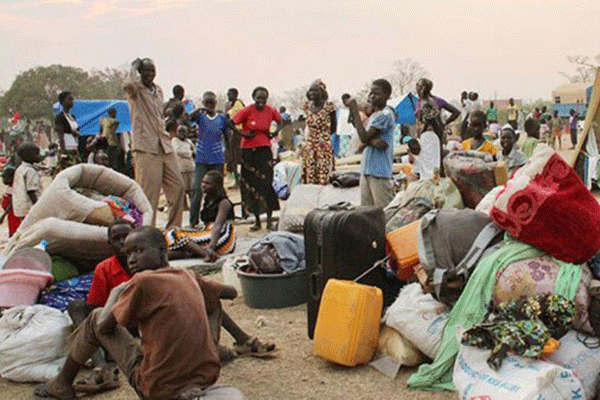Refugees, residents say police not helping them

Some of the refugees fetch water at Dzaipi settlement in Adjumani District. The refugees have decried inaccessibility to justice in the settlements. PHOTO BY FELIX
What you need to know:
Refugee-hosting communities say police officers make them pay in the quest for justice.
Several refugees and members of the host community have accused the police of denying them justice by asking for money before attending to their needs.
The revelations were made during an engagement organised by the Uganda Human Rights Commission for refugee-hosting districts of Adjumani and Lamwo districts.
Mr Moses Nyang, a local leader, on Monday said only those who give police money are attended to.
“Just last week, a group of women fought in a refugee settlement, the matter was reported to the police and the police asked the women to pay money for fuel in order to arrest the suspects,” Mr Ngang said.
He said the women did not have money because they do not engage in any income-generating activities.
“I don’t know why police officers keep asking complainants asking for money, yet UNHCR and other partners give fuel,” Mr Nyang said.
Ms Elizabeth Ayen, a refugee at Mungula refugee settlement in Adjumani, said she was a victim when she reported a case at a police station two weeks ago. She said police officers asked her to pay money in order to effect the arrest of suspects.
She claimed that she went with friends to buy two goats at a market, where a goat is sold at between Shs100,000 and Shs120,000. However, on their way to the market, she said she dropped Shs240,000 and recalled that there were some women in the vicinity who could have picked the bundle of money.
“The police recovered my money. But this was only after they asked me to pay them Shs60,000, which I did not have. I gave them Shs20,000 for fuel and an additional Shs10,000 as facilitation,” Ms Ayen said.
She added: “I had no option but to pay, since I wanted them to recover my money.”
Ms Irene Anzoa, a refugee from Agojo refugee settlement, said she faced a similar challenge recently when she filed a complaint of theft at a police station.
Mr Ignatius Dragudu, the community liaison officer who also doubles as the public relations officer for North West Nile Police Region, said :“We are well facilitated to do all our operations, we are not supposed to ask for money from civilians, if that arrangement is on friendly basis they can ask.”
“I want to warn those who want to engage in this kind of practice that the government is able to facilitate all its operations, we have enough logistics, any one found to be doing that will be held responsible as an individual,” Mr Dragudu added.
Mr James Nzunzu, the regional Prisons commander for Adjumani and Moyo districts, said: “It is time for us to reflect on ourselves and ensure the refugees and host communities get justice.”
Officials speak out
Ms Phiona Opoka, the Uganda Human Rights Commission’s regional human rights officer for northern Uganda, said: “There is a tendency to ask for money from complainants before they get any services. The refugees are asked to pay some amount of money for fuel, especially when they report cases of defilement. This is not correct.”
Mr Khamadi Byonabye, the director of research, education, and documentation at Uganda Human Rights Commission, said: “The idea is to identify challenges related to the legal framework from the refugees and citizens including the cultural and values attached and how they should be handled in line with Ugandan laws.”
He added: “We urge duty bearers to ensure the rights of refugees are equally respected. The refugees should not be victimised but they should also respect the laws of Uganda.”
Uganda hosts an estimated 1.5 million refugees. Of these, 212,648 are in Adjumani District and 79,021 in Lamwo District.




